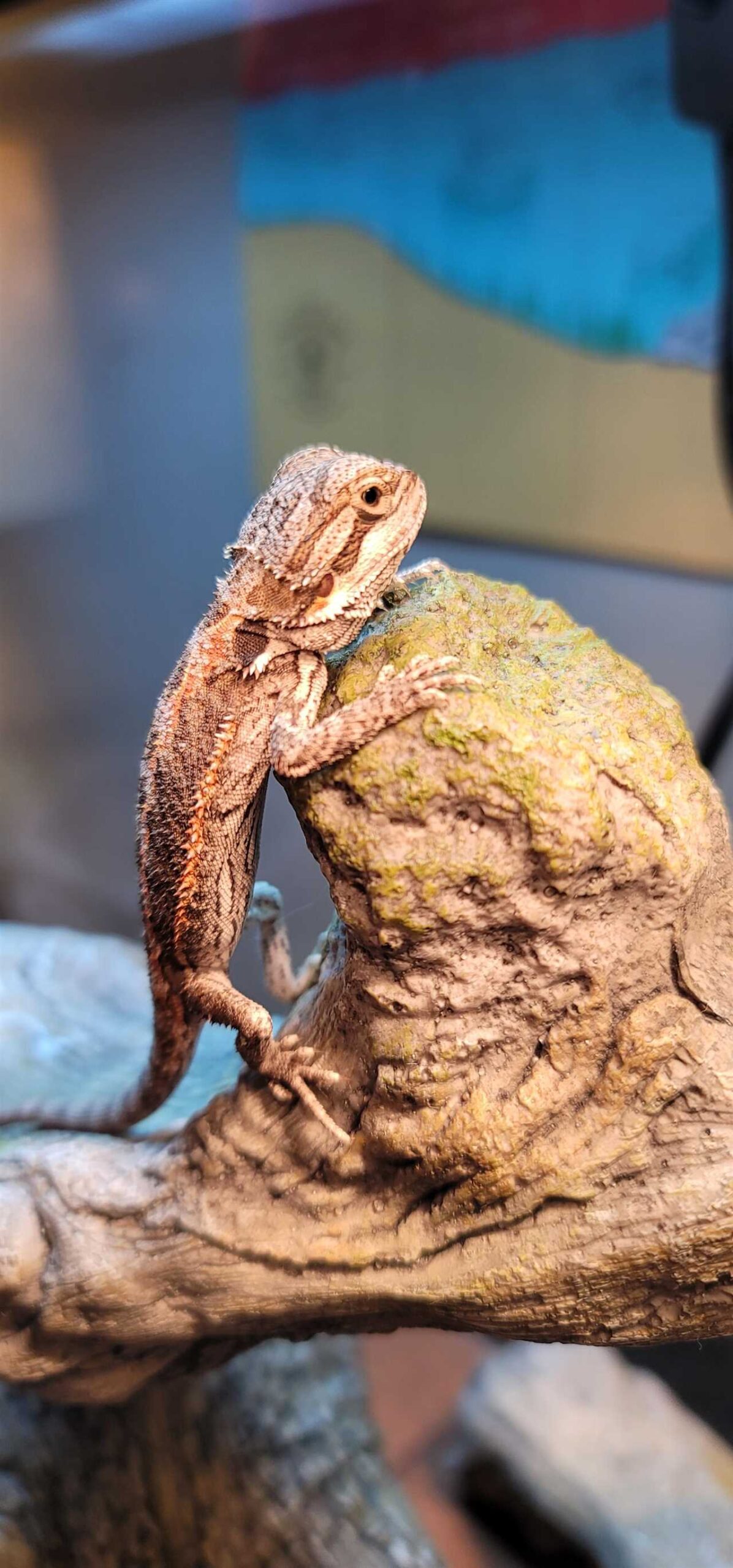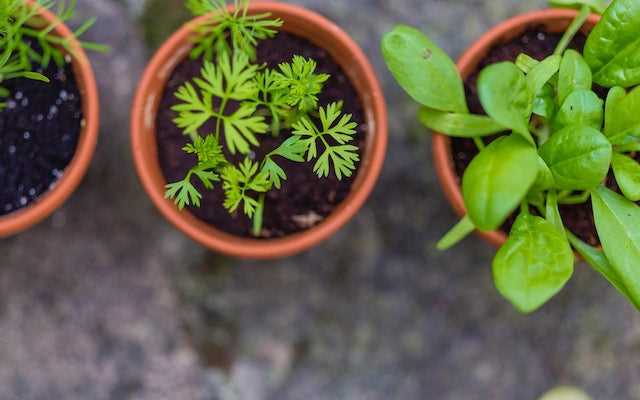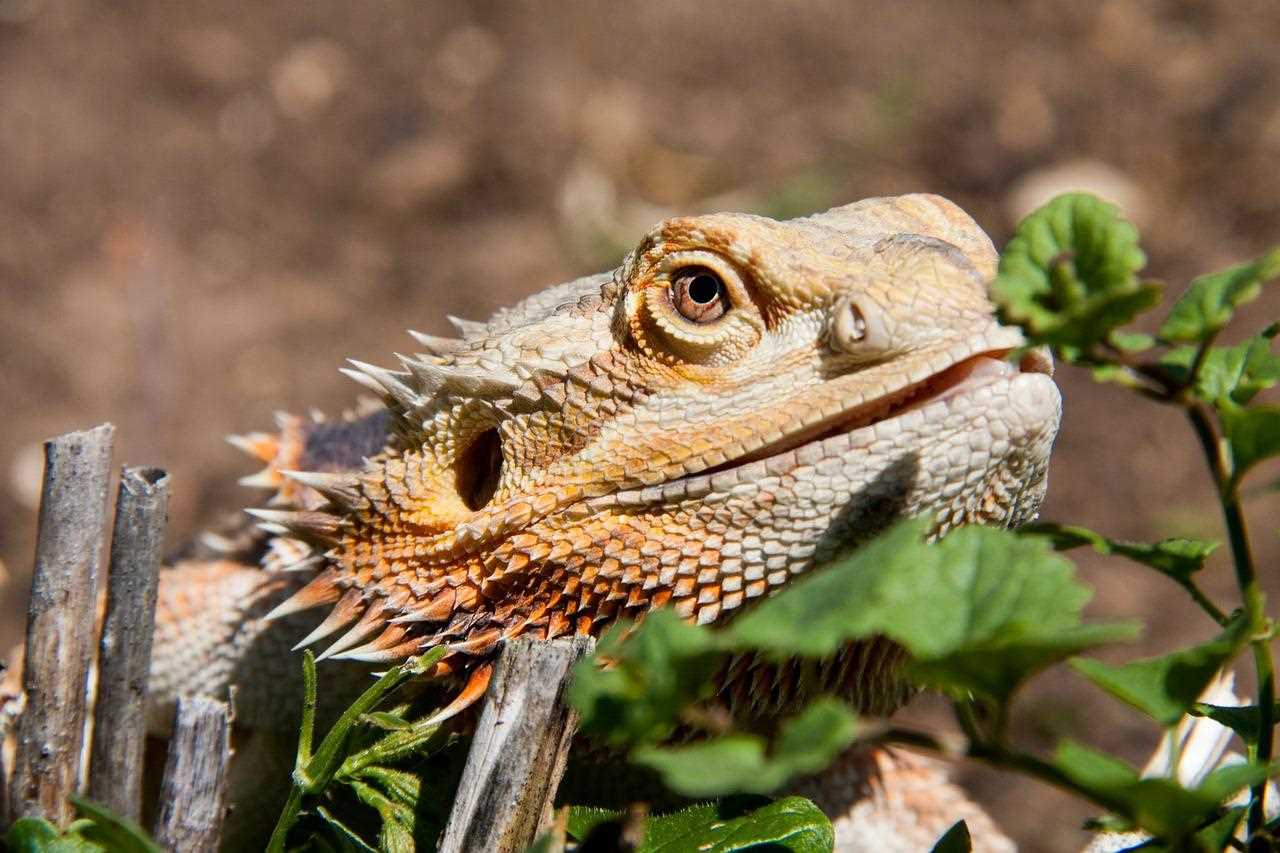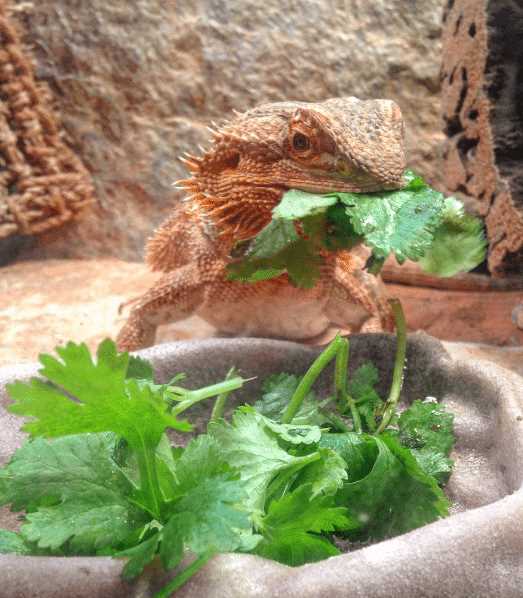
While parsley is not inherently toxic to bearded dragons, it should be fed in moderation due to its high oxalate content. Oxalates are compounds that can bind to calcium, forming crystals that can lead to health issues like kidney stones in reptiles. Bearded dragons have specific dietary requirements that prioritize a proper calcium-to-phosphorus ratio, and excessive intake of oxalates can disrupt this balance.
Bearded Dragon Diet

Is Parsley Safe for Bearded Dragons?
Parsley is generally safe for bearded dragons to eat. However, it should be offered in moderation as part of a varied and balanced diet.
Parsley is a leafy green herb that is rich in various nutrients such as vitamins A, C, and K, as well as minerals like calcium and iron. These nutrients can benefit the health of bearded dragons when consumed in appropriate quantities.
Nutritional Content of Parsley
Parsley is low in calories and high in fiber, making it a nutritious addition to a bearded dragon’s diet. Here is a breakdown of the nutritional content of parsley:
- Vitamin A: Parsley is rich in vitamin A, which is essential for maintaining healthy vision, skin, and immune function.
- Vitamin C: This herb is also a good source of vitamin C, an antioxidant that supports the immune system and promotes the absorption of iron.
- Vitamin K: Parsley contains vitamin K, which plays a crucial role in blood clotting and bone health.
- Calcium: While parsley does contain calcium, the presence of calcium oxalate may limit its absorption by the body. Therefore, other calcium-rich foods should also be included in the bearded dragon’s diet.
- Iron: Parsley is a good source of iron, which is important for the production of red blood cells and the transportation of oxygen throughout the body.
Risks and Considerations
Although parsley is generally safe for bearded dragons, there are some risks and considerations to keep in mind:
- Overconsumption: Bearded dragons should not consume large amounts of parsley as it can lead to digestive issues such as diarrhea. It should be given in moderation along with other appropriate greens and vegetables.
- Pesticides: It is recommended to offer organic parsley to avoid potential exposure to pesticides or other harmful chemicals.
- Calcium Absorption: Due to the presence of calcium oxalate, bearded dragons should not rely solely on parsley for their calcium needs. A variety of other calcium-rich foods, such as calcium-rich greens and gut-loaded insects, should be included in their diet to ensure proper calcium absorption.
Alternative Greens for Bearded Dragons
Parsley can be part of a diverse diet for bearded dragons, but it is always a good idea to offer a variety of other greens and vegetables to ensure optimal nutrition. Some suitable alternatives to parsley include:
- Collard greens
- Mustard greens
- Kale
- Dandelion greens
- Turnip greens
- Bok choy
These greens provide a range of different nutrients and can be rotated to offer variety in the bearded dragon’s diet.
Is Parsley Safe for Bearded Dragons?
Bearded dragons are omnivorous reptiles that require a diverse diet to stay healthy. While they primarily eat insects, they can also consume a variety of fruits, vegetables, and leafy greens. However, not all greens are safe for bearded dragons, and one common question that owners have is whether parsley is safe for them to eat.
What is Parsley?
Can Bearded Dragons Eat Parsley?
While parsley is not toxic to bearded dragons, it is generally not recommended as a staple part of their diet. The main reason for this is that parsley contains high levels of oxalates, which can interfere with the absorption of calcium in a bearded dragon’s digestive system.
Calcium is an essential nutrient for bearded dragons, as it plays a crucial role in maintaining their bone health and overall well-being. If a bearded dragon consumes excessive amounts of foods high in oxalates, such as parsley, it can lead to a condition called metabolic bone disease (MBD).
MBD is a serious condition that can cause a range of health issues in bearded dragons, including weakened bones, deformities, and organ damage. Therefore, while bearded dragons can safely consume small amounts of parsley occasionally, it should not be a regular part of their diet.
Risks and Considerations
When feeding parsley to your bearded dragon, it is crucial to consider the potential risks and take precautions. Make sure to thoroughly wash the parsley leaves to remove any potential pesticides or contaminants. Additionally, always offer a variety of other leafy greens and vegetables to ensure your bearded dragon gets a balanced diet.
Some safe alternatives to parsley that you can include in your bearded dragon’s diet are kale, collard greens, dandelion greens, and mustard greens. These greens offer similar nutritional benefits without the high oxalate content.
What is Parsley?
Parsley is a popular herb that is commonly used as a garnish or ingredient in many culinary dishes. It is a biennial plant that belongs to the Apiaceae family and is native to the Mediterranean region. Parsley has been cultivated for centuries and is now grown and consumed worldwide.
Can bearded dragons eat parsley?
Yes, bearded dragons can eat parsley in moderation. It can be a nutritious addition to their diet, providing them with a variety of vitamins and minerals. However, it should not be the sole food source for your bearded dragon, as it lacks some essential nutrients that they need for their overall health and well-being.
Benefits of parsley for bearded dragons
Parsley is low in calories and high in fiber, which can help promote healthy digestion in bearded dragons. It also contains vitamins A, C, and K, as well as minerals like iron and calcium, which are essential for their growth and development. These nutrients can support their immune system, promote healthy eyesight, and contribute to strong bones and teeth.
Additionally, parsley contains antioxidants, such as flavonoids and carotenoids, which can help protect the cells from damage caused by harmful free radicals. This can potentially reduce the risk of certain diseases and promote overall well-being in bearded dragons.
How to feed parsley to bearded dragons
It is recommended to feed parsley as a part of a balanced diet for bearded dragons. This means that it should be combined with other greens, vegetables, and protein sources to ensure that your pet receives all the necessary nutrients for their health. Make sure to consult with a reptile veterinarian or an experienced reptile owner to create an appropriate diet plan for your bearded dragon.
Nutritional Content of Parsley
Parsley is a leafy green herb that is rich in vitamins and minerals, making it a potentially beneficial addition to a bearded dragon’s diet. It contains vitamins A, C, and K, as well as minerals like calcium, potassium, and iron.
Vitamin A is essential for the health of a bearded dragon. It helps with their vision, immune system function, and promotes healthy skin and scales. Vitamin C is an antioxidant that helps support the immune system and protects against oxidative stress. Vitamin K is important for blood clotting and bone health.
Calcium is crucial for bearded dragons as it helps maintain strong bones and teeth. Insufficient calcium intake can lead to metabolic bone disease, a serious condition that can affect the overall health of the dragon. Potassium is necessary for proper muscle and nerve function, while iron is essential for oxygen transport in the blood.
Incorporating parsley into a bearded dragon’s diet can provide them with these essential nutrients. However, it should be noted that parsley should not be the sole source of these nutrients and should be offered in moderation as part of a balanced diet.
Can Bearded Dragons Eat Parsley?

While parsley can be a source of vitamins and minerals for bearded dragons, it should not be the main part of their diet. This is because parsley contains high amounts of calcium oxalate, which can bind to calcium and prevent its absorption. Bearded dragons require a good balance of calcium and phosphorus for proper bone health, and too much calcium oxalate can lead to metabolic bone disease.
Some suitable alternatives to parsley for bearded dragons include collard greens, dandelion greens, mustard greens, and turnip greens. These greens are lower in calcium oxalate and can provide a good source of vitamins and minerals for your pet.
Risks and Considerations

Another consideration is the potential for allergies or digestive issues. Some bearded dragons may have sensitivities to parsley, which can cause symptoms such as diarrhea or vomiting. If you notice any adverse reactions after feeding your dragon parsley, it is best to avoid it in the future.
Conclusion:

- Parsley can be fed to bearded dragons in small amounts, but it should not be the main component of their diet.
- Some bearded dragons may have allergies or digestive issues with parsley, so it is best to monitor their reaction and discontinue if necessary.
- Flat-leaf parsley is considered safer than curly parsley due to its milder flavor and lower concentration of potentially harmful compounds.
Overall, while bearded dragons can eat parsley in moderation, it should be given as part of a balanced and varied diet to ensure their optimal health and well-being.
Alternative Greens for Bearded Dragons
While it is generally safe for bearded dragons to eat parsley in moderation, it is always a good idea to provide a variety of greens in their diet. This ensures that they receive a balanced nutritional intake and helps prevent any potential health issues.
Here are some alternative greens that you can offer to your bearded dragons:
1. Collard Greens
Collard greens are a nutritious option for bearded dragons. They are high in calcium, which is essential for the health and development of their bones. Additionally, collard greens also contain vitamins A and K, as well as fiber.
2. Mustard Greens
Mustard greens are another great choice for bearded dragons. They are rich in nutrients such as calcium, vitamin A, and vitamin K. Mustard greens also provide a good amount of fiber, which aids in digestion.
3. Dandelion Greens
Dandelion greens are a natural and safe option for bearded dragons. They are packed with vitamins A, C, and K, as well as various minerals. Dandelion greens also have a diuretic effect, which can be beneficial for bearded dragons with kidney or bladder issues.
4. Kale
Kale is a leafy green vegetable that is highly nutritious for bearded dragons. It is an excellent source of vitamins A and C, as well as calcium and fiber. However, kale should be fed in moderation due to its high oxalate content, as excessive consumption can potentially lead to calcium deficiencies.
When offering alternative greens to your bearded dragons, remember to wash them thoroughly and remove any stems or seeds that may pose a choking hazard. It is also important to provide a variety of greens to ensure a balanced diet for your pet.
Remember to consult with a reptile veterinarian or an experienced reptile keeper for specific guidance on feeding your bearded dragons and maintaining their overall health and well-being.

I’m Lena Adams—a product of an unconventional upbringing in the African wilderness. My father, a daring explorer of African wildlife, sparked my fascination with reptiles, a passion that intertwined with the tragic loss of my mother during an expedition, leaving an indelible mark on my life. Driven to understand the creatures that captivated my parents, I embarked on my journey, sharing insights about reptiles, frogs, and lizards on my website. Through my explorations and conservation efforts, I honour my family’s legacy while seeking connections—to the creatures, nature, and the mother whose presence I yearn to understand.
